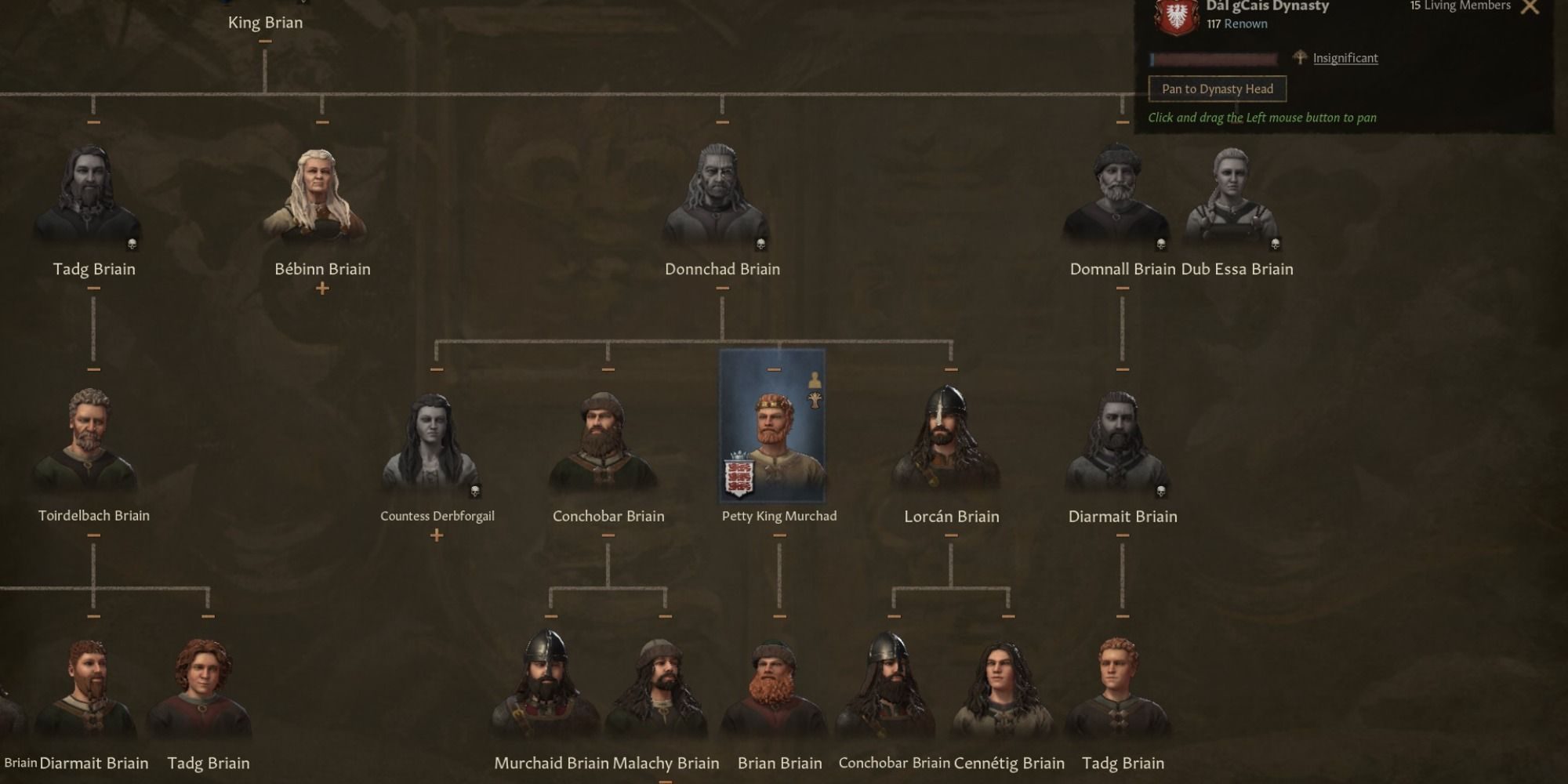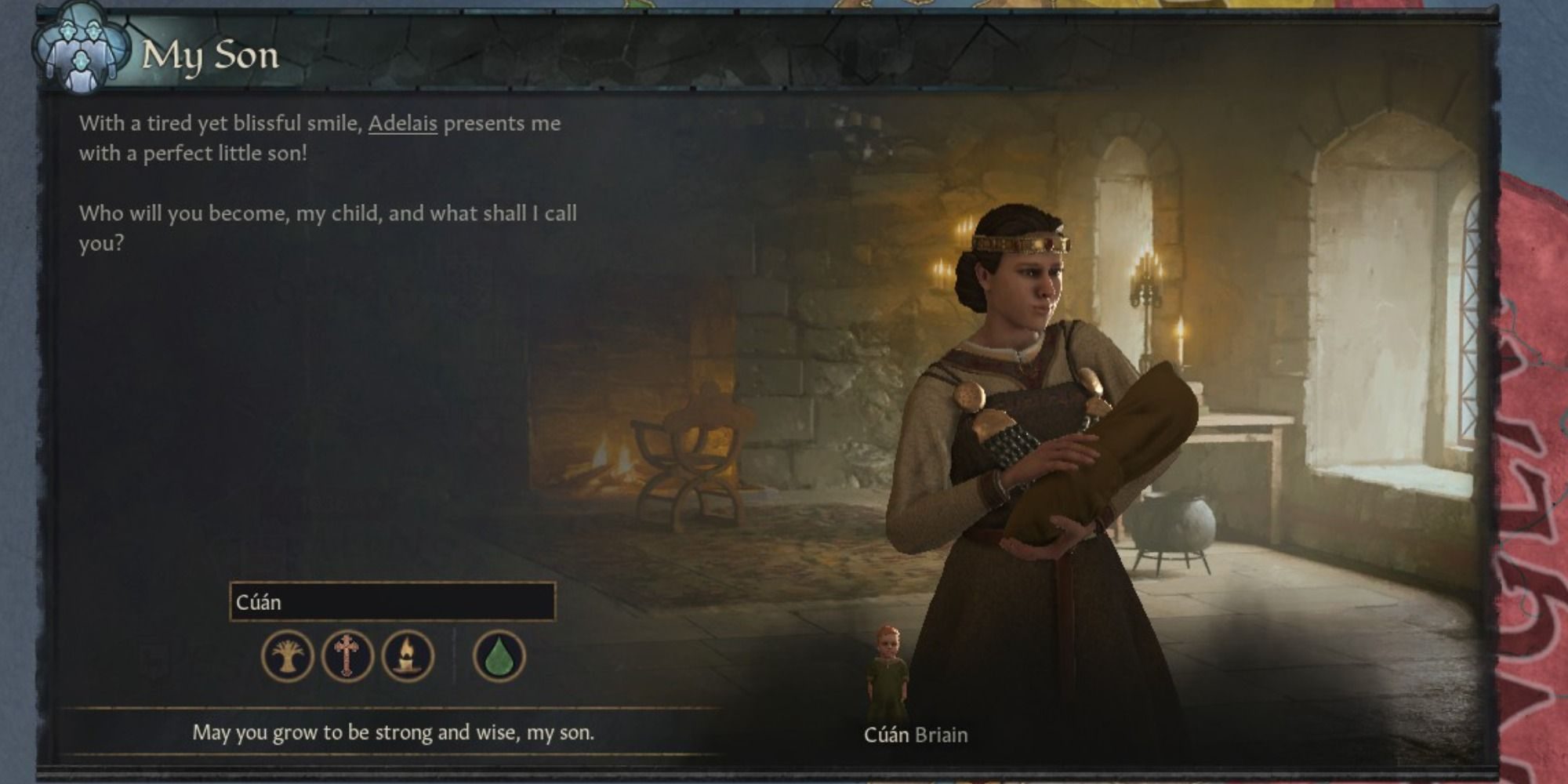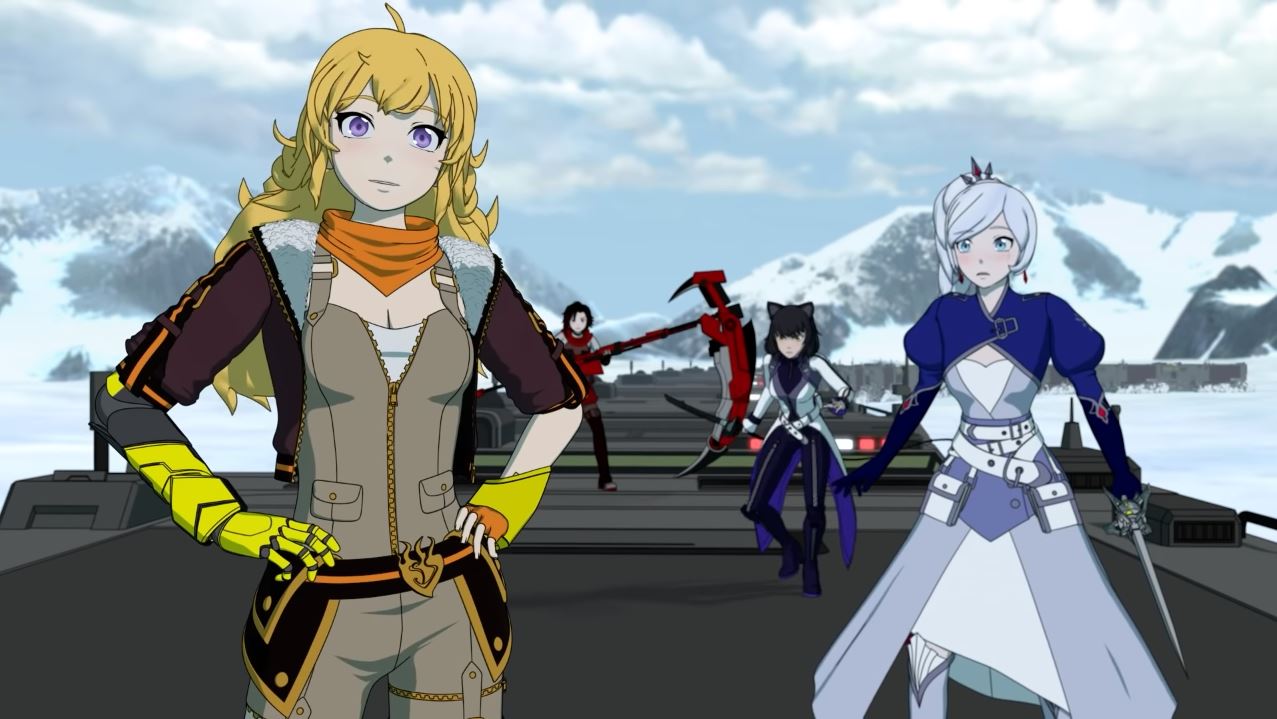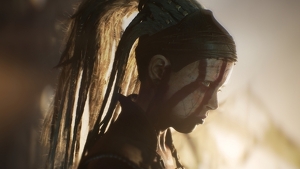Crusader Kings 3 has a complex and robust genetic simulation feature that plays a big role in the game. Traits greatly affect how good a character is at certain things and can change the ways in which they interact with the world, and some of these traits can be inherited.
RELATED: Things Beginners Should Do First In Crusader Kings 3
These are known as congenital traits and they come in both helpful and hindering forms. Knowing how the inheritance system works can help inform your strategy when it comes to marriage and succession or even become a fun exercise to create the most blessed or cursed character in existence.
Congenital Traits

There are a few different types of congenital traits. Some are simply standalone traits that can be passed down, while others are part of a group of traits that share characteristics and can be modified one way or another.
Standalone Traits
These traits have a chance of being inherited by any child of a character who has them, which may help you when choosing a marriage partner or whether to embrace celibacy.
- Fecund improves fertility, but cannot be inherited at the same time as Barren/Sterile, as they reduce fertility.
- Lisping, Stuttering, and Albino are traits that can impede diplomacy but make characters friendlier with others who share the trait. Albino also has a nice Natural Dread bonus.
- There are three health traits that are invisible upon birth but will appear later in life. These are heritable versions of Melancholic, Lunatic, and Possessed. There is no way to know if these traits were inherited or not.
-
There are multiple traits that can be inherited or be the result of inbreeding. These are Club-footed, Hunchbacked, Dwarf, Giant, Spindly, Scaly, Wheezing, Bleeder, and Barren/Sterile.
- Of these, most are attached to attraction and opinion maluses, and some have health implications too. On their own, they aren't too dangerous or frustrating to deal with, but they can add up – especially with lots of inbreeding.
- Dwarf and Giant are, understandably, mutually exclusive. While it has the red background usually reserved for what the game considers to be a negative trait, Giant comes with great bonuses to prowess and opinion in exchange for a small malus to health.
- Spindly cannot coexist with Hale, Robust, or Amazonian/Herculean which are detailed in the next section.
Group Traits
There are three specific groups of six traits each in Crusader Kings 3. These traits form chains that can actually be "leveled up" as more generations are born. If two parents have the same trait in one of these chains, there is a 50% chance that their offspring will be born with that trait but of a higher level.
The three groups are Attractiveness, Intelligence, and Strength. Attractiveness traits affect a character's diplomacy, attraction opinion, and fertility. Intelligence traits provide a bonus or malus to each of the character's skills, as well as affecting their monthly lifestyle experience. Strength traits affect a character's combat prowess, attraction opinion, and health rating.
Each trait group has three negative traits and three positive traits that range in power. Players often value the Intelligence traits most of all, as at Genius level a character is blessed with a +5 to all of their stats.
| -3 | -2 | -1 | 1 | 2 | 3 | |
|---|---|---|---|---|---|---|
| Attractiveness | Hideous | Ugly | Homely | Comely | Pretty/Handsome | Beautiful |
| Intelligence | Imbecile | Stupid | Slow | Quick | Intelligent | Genius |
| Strength | Feeble | Frail | Delicate | Hale | Robust | Amazonian/Herculean |
How Inheritance Works

There are two types of traits when it comes to inheritance: active and inactive. Active traits are visible on the character screen and have actual effects, while inactive traits do not show up and are treated more like recessive genes.
When a child is born, the game calculates their chance of inheriting each congenital trait individually. The game will first see if they inherit the trait as an active trait. If not, the game tries again but for an inactive version of the trait. If both rolls fail, the child does not inherit the trait in any form.
The chances of inheritance are based on the traits of the parents and whether those traits are active or inactive.
| Parental Traits | Chance of Active Inheritance | Chance of Inactive Inheritance |
|---|---|---|
| 1 Inactive | 2% | 25% |
| 2 Inactive | 10% | 50% |
| 1 Active | 25% | 75% |
| 1 Active + 1 Inactive | 50% | 100% |
| 2 Active | 80% | 100% |
As you can see from this table, even if a child does not inherit one from their parent, they still have a decent chance of inheriting their congenital traits inactively. In addition to that, even with both parents having the same trait, there is only an 80% chance of inheritance.
There is another way to influence the inheritance of traits within your dynasty, and that is through using the Dynasty Legacies feature. Dynasty Legacies are permanent features that are purchased with renown, a currency that accrues as you earn prestige.
One of these legacy trees is known as Blood and has some genetics-relevant legacies. Clever use of the legacies in this tree will make it much easier to influence the inheritance of traits.
- The first in the tree improves the chance of inheriting positive traits and spawning new ones.
- The second legacy improves the chance of improving leveled traits upon birth.
- The third reduces the chance of inheriting negative traits.
- The fourth legacy allows you to choose one of a variety of congenital traits to become more common for your entire dynasty.
NEXT: Crusader Kings 3: Ranking The Lifestyle Traits



